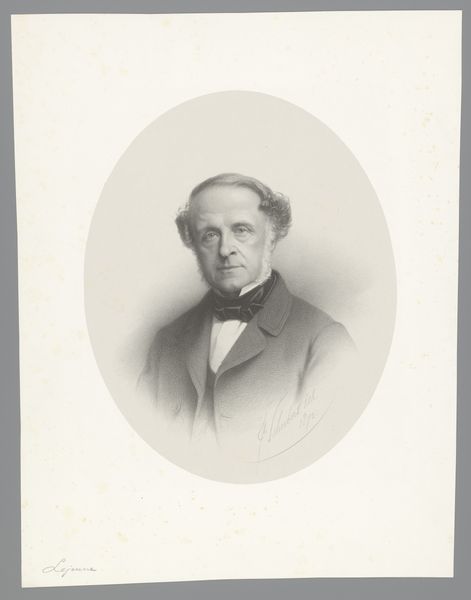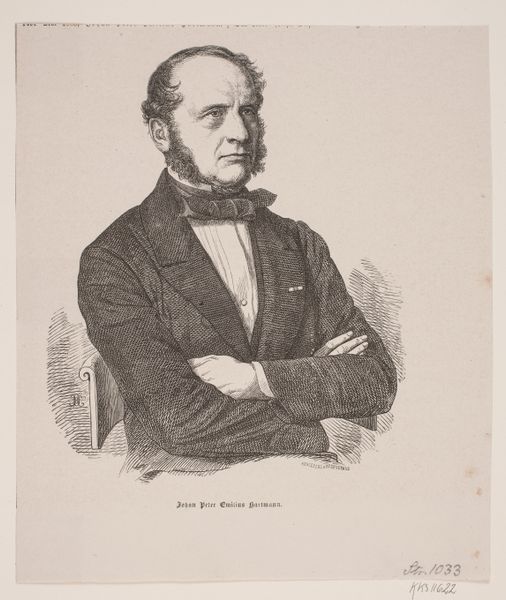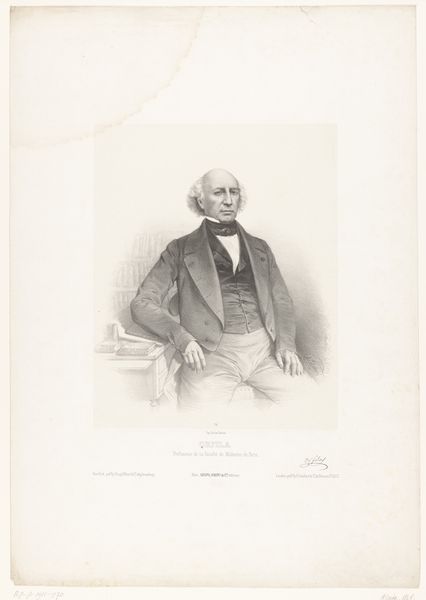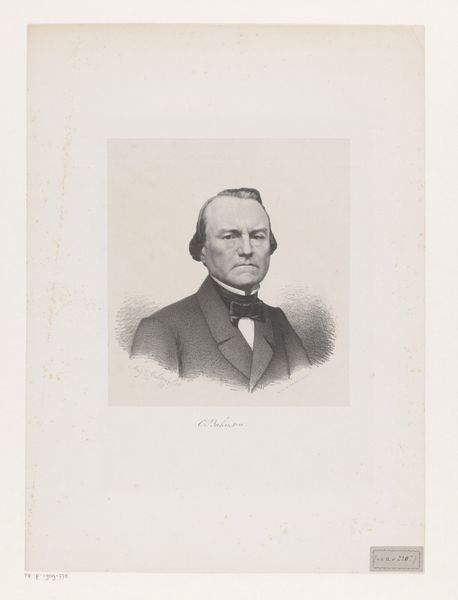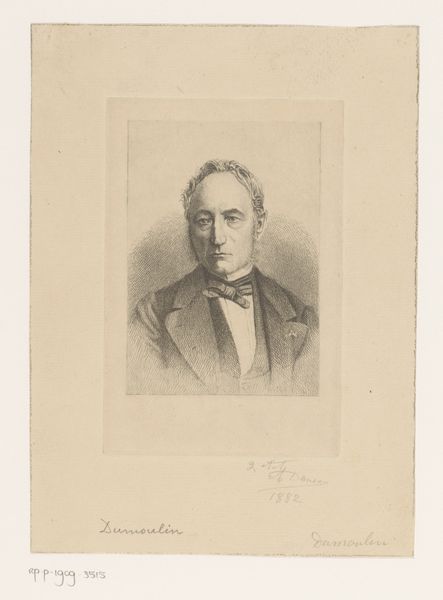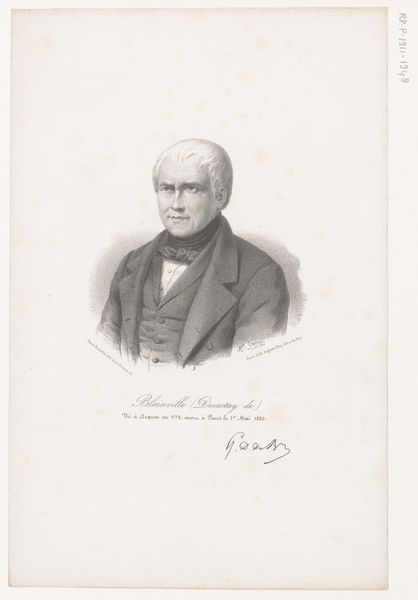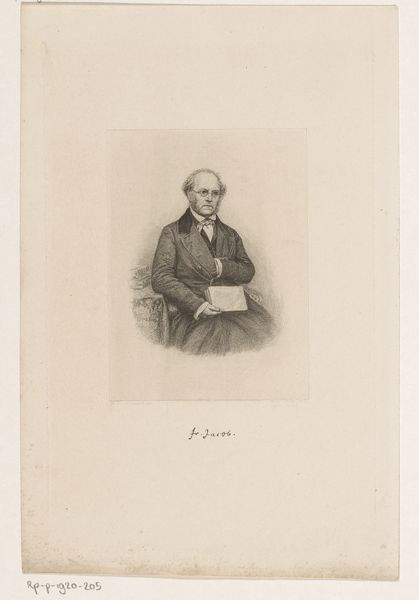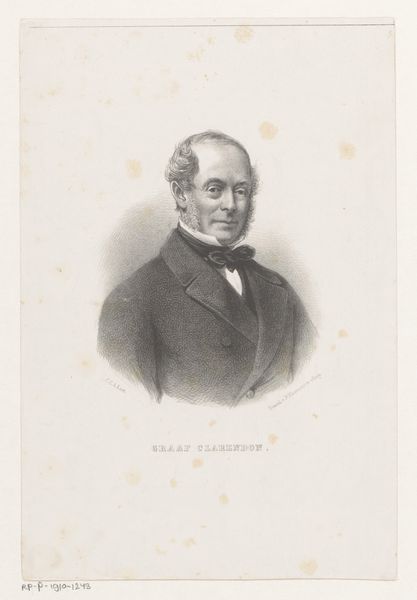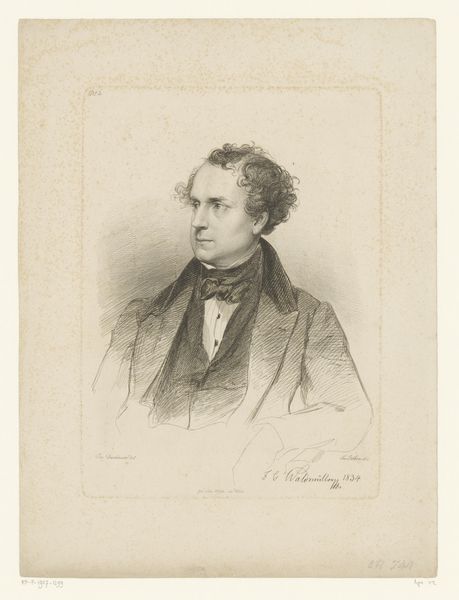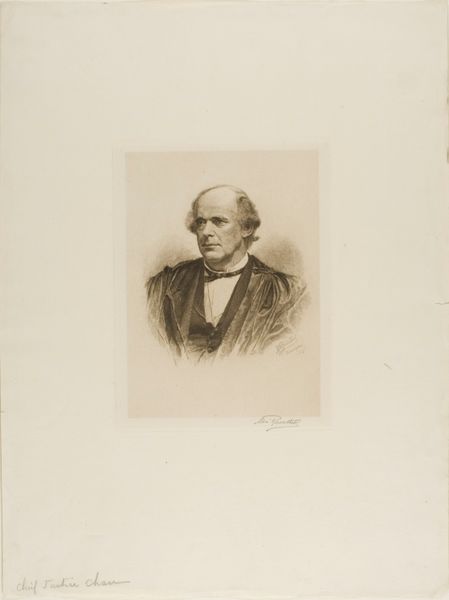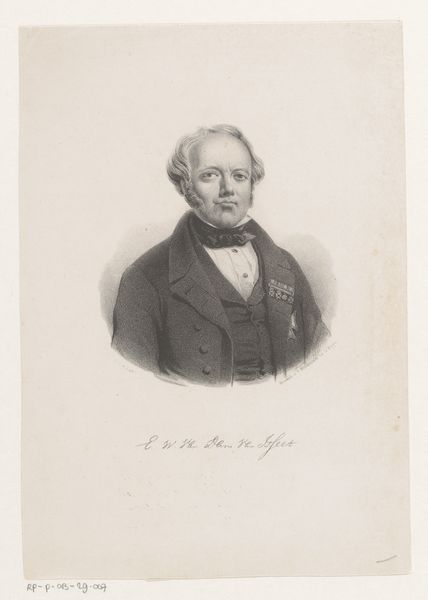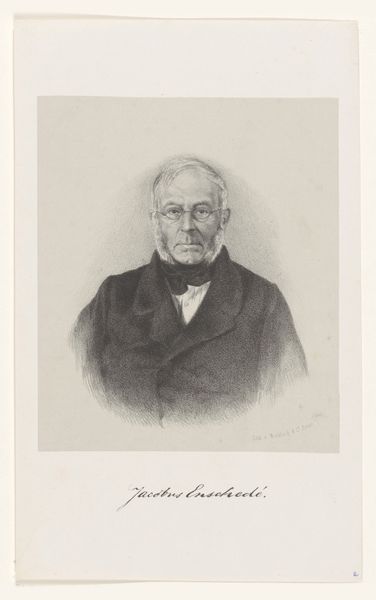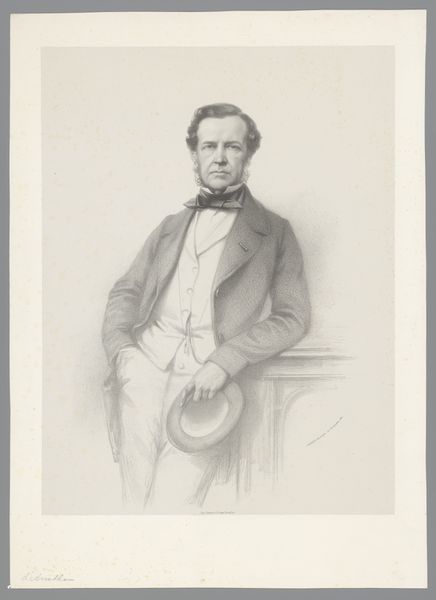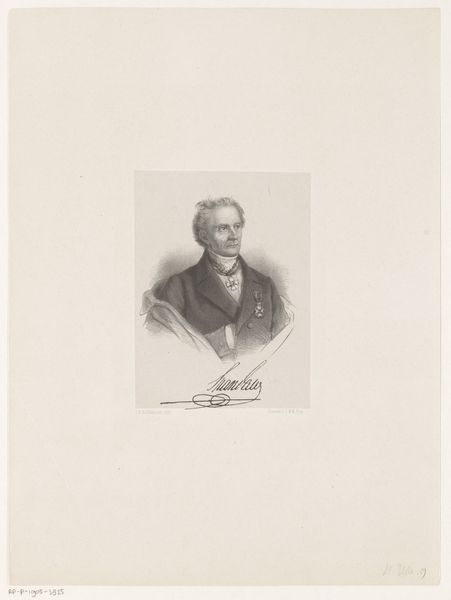
Dimensions: height 280 mm, width 209 mm
Copyright: Rijks Museum: Open Domain
Curator: At first glance, the meticulous lines create an image of almost photographic clarity, and I must say that he doesn't appear pleased with something... Editor: Well, let me set the stage. This engraving, completed in 1852, is titled "Portret van Jan Baptiste De Jonghe". The artist behind it is Joseph Schubert, and it’s now housed in the Rijksmuseum. Schubert worked mostly in lithography, so his experience gave him special insight with which to work the printing surface. Curator: Engraving, though? Interesting choice for a portrait. Given the era, and knowing my engravers, that must have required weeks, maybe months of meticulous work with the burin... You really feel the dedication here, it's not just skill. It feels reverent. Editor: You are absolutely right. Schubert uses engraving to mimic the tonal range and detail found in paintings of the era, although this work also displays elements of Realism, in its accuracy, and Romanticism, through an idealized lens. The crisp lines and shading are quite effective. Curator: His eyes are quite striking. There's a hint of knowingness behind those glasses, as if he’s seen more than he lets on. It certainly isn't just a record, like a photograph can be—it is somehow also a reveal. Editor: You can perceive it as such. I perceive how the composition itself, focusing so centrally and frontally, conveys a sense of steadfastness and importance, even though the subject may be perceived as "mild" by the common man. Curator: Yes, he’s certainly no imposing Napoleon! But there's something incredibly earnest in that gaze...makes you want to ask questions and linger a while to hear what he has to say...I am almost certain he enjoyed a good book and appreciated silence. Editor: I find that in its stark lines and confident declaration, the portrait captures something significant about 19th-century bourgeoisie aspirations and status that photographs can often overlook, something I greatly appreciate. Curator: A silent poem, if you ask me. Thank you for your insightful perspective on this striking print! Editor: My pleasure. It is often fruitful to allow artworks to speak for themselves and reveal nuances from many distinct perspectives.
Comments
No comments
Be the first to comment and join the conversation on the ultimate creative platform.
